Boris Johnson denies deleting Whatsapp messages ahead of Covid inquiry
Boris Johnson is to face a second day of grilling at the covid inquiry on Thursday.
During his first day of testimony, Mr Johnson’s apology to the nation was interrupted by four people who staged a protest in the hearing room.
Mr Johnson arrived three hours early on Wednesday morning to dodge the protesters waiting outside. During the day he admitted the pandemic’s impact on the NHS had “bewildered” him. He also acknowledged the government’s policy appeared “incoherent” on the timing of actions in light of the graph in March 2020 suggesting the NHS could be overwhelmed.
Mr Johnson stumbled over his words as the inquiry heard he lost 5,000 WhatsApp messages between January 2020 and June 2020.
He also implied the mad cow disease crisis in Britain made him sceptical of the threat of coronavirus as it “wasn’t nearly as fatal as people had originally believed”.
Mr Johnson ‘meant no disrespect’ with Gulf War comments
Mr Johnson told the inquiry that he only got a “proper” paper on long Covid in the summer of 2021.
Mr Keith told the inquiry that Mr Johnson “continued to make disparaging references to whether or not this is Gulf War syndrome stuff” in February 2021, and again in June 2021.
The inquiry has also previously been shown a WhatsApp message from February 2021, where Mr Johnson said: “Do we really believe in long Covid? Why can’t we hedge it more? I bet it’s complete Gulf War Syndrome stuff.”
Mr Johnson told the hearing: “It’s no disrespect to long Covid patients and I saw in the victim impact videos are some of the victims of long Covid, I can imagine what a dreadful thing is.
“But there are also, with Gulf War syndrome, many people who have terrible symptoms for a very long time.
“There are also people who think they may be suffering, I think this is the now accepted, from something associated with the Gulf War, but who are not in fact suffering from something associated with the Gulf War.
“So what I was trying to say was ‘where is the, where is the line’? And ‘please can someone explain to me what this is?’
“Because I was getting anecdotal accounts of people who were suffering from it, and I wanted to be able to say what we understood it to be and what we were doing about it.
“And what we were doing about it is fighting Covid, because the way to stop long Covid is to, is to stop Covid.”
Boris Johnson ‘regrets’ long Covid remarks
Boris Johnson has said he “regrets” describing long Covid as “bollocks”.
But charities representing people with the condition said the former prime minister “only apologised because he got found out”.
The UK Covid-19 Inquiry heard that Mr Johnson made a number of “disparaging” remarks about the condition during his time in office.
A document from October 2020 described symptoms of the condition, beside which he wrote “bollocks” and “this is Gulf War Syndrome”.
Counsel to the inquiry, Hugo Keith KC, said: “You were I think less sympathetic to the needs of those persons suffering from long-term sequela, that is to say, suffering from the condition (known) as long Covid.
“You questioned for quite some time whether or not that condition truly existed and you equated it to Gulf War syndrome repeatedly, is that fair?”
Mr Johnson replied: “Not really, no.
“The words that I scribbled in the margins of submissions about long Covid have obviously been now publicised and I’m sure that they have caused hurt and offence to the huge numbers of people who do indeed suffer from that syndrome.
“And I regret very much using that language and I should have thought about the possibility of future publication.”
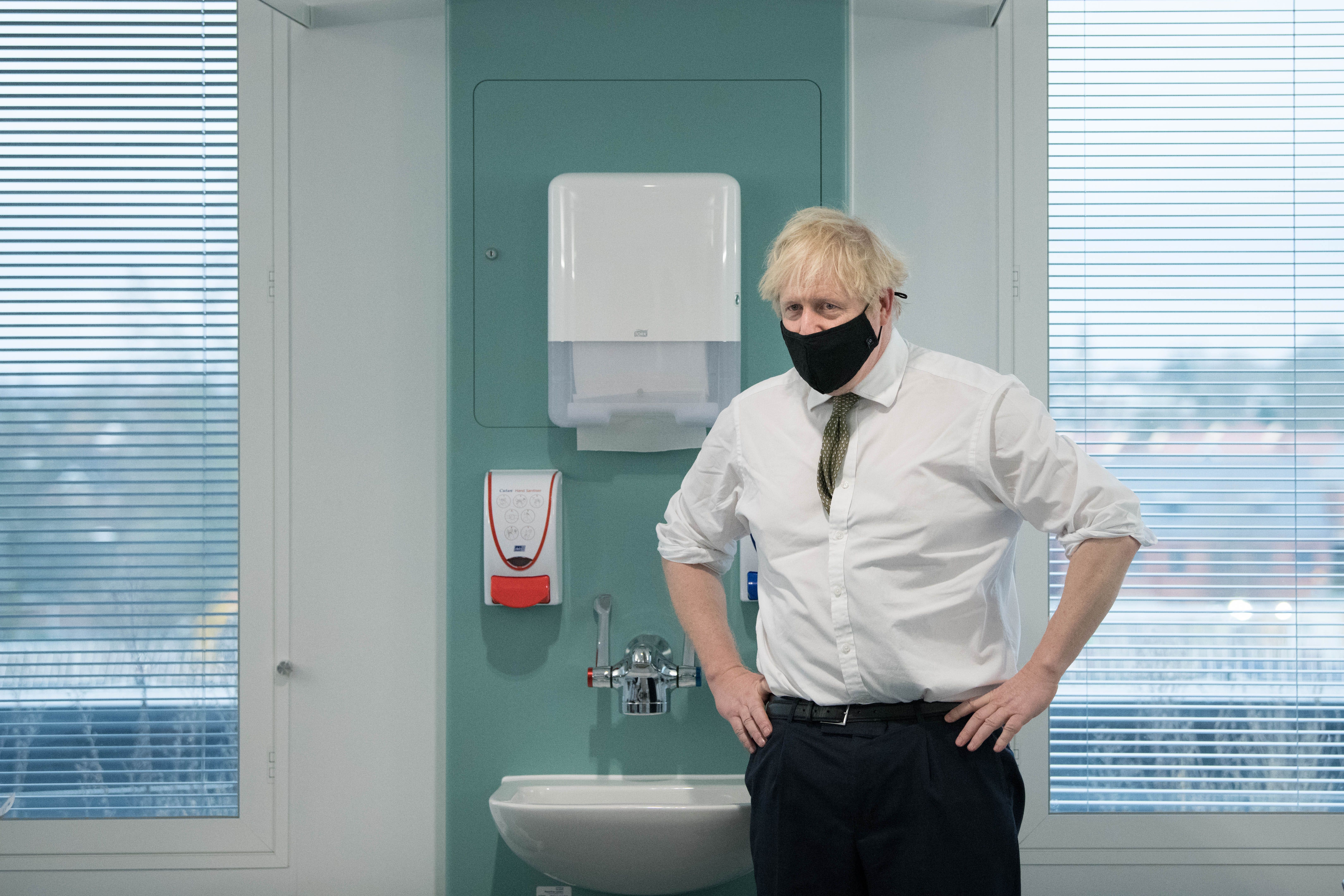
Boris Johnson during a visit to a hospital during the pandemic
Families demand answers from former PM
Mert Dogus, 21, whose father died of Covid, said Mr Johnson “should be giving answers for some of his actions” at the Covid inquiry.
His father, cab driver Haci Ali Dogus, 49, died in March 2020, leaving behind his wife and two sons.
In response to Mr Johnson’s apology for the “suffering of the Covid victims”, Mr Dogus, a student at Brunel University London, said “I’m not surprised, he kind of owes it.
“Obviously, he was in control of the country at the time, so naturally, he should be apologising for those who are lost.”
Mr Dogus said Mr Johnson “should be giving answers for some of his actions” and it is “good for us to see his reasoning behind” decisions that Mr Johnson’s government took during the Covid pandemic.
In response Mr Johnson said at the inquiry that he was “not sure” whether Government decision-making had led to “materially” a larger number of excess deaths as a result of the pandemic, Mr Dogus said: “He can’t really say that.”
He said: “Boris waited, and he waited and waited and then obviously it spread a lot more and then it turned into this huge thing.”
“If you caught it whilst it was early, I think it wouldn’t have been as bad.”
Mr Dogus added that prohibited gatherings by Mr Johnson and government and Conservative Party staff during the Covid-19 pandemic was “a slap in the face to all of us, who have obviously lost members of our families”.
Bereaved family members call Johnson’s apology at Covid inquiry ‘meaningless’
Family members of people who died during the pandemic have criticised Boris Johnson after he admitted his government “underestimated” the threat of coronavirus.
Appearing at the Covid-19 Inquiry in London on Wednesday, Mr Johnson apologised for “the pain and the loss and the suffering of the Covid victims” but said he was “not sure” whether Government decision-making had led to “materially” a larger number of excess deaths.
Jane Basham, 61, whose sister Sandra died in January 2021 after contracting coronavirus, branded Mr Johnson’s apology “meaningless”, adding she held him responsible for her sibling’s death aged 61.
Sandra Basham had been caring for older people in their homes near Dartford, Kent, during the pandemic before she was admitted to hospital, with Ms Basham adding her family did not see her because they were taking the virus seriously.
Ms Basham, of Ipswich, Suffolk, said: “His apology is meaningless to me, and many of us who are bereaved.
“If Boris Johnson was truly sorry then he would have delivered a public inquiry when it was first requested and not forced a group of traumatised bereaved relatives to have to fight for it.
“He would have shown humility and met the bereaved families who stand outside the inquiry every day rather than scuttling in before dawn.”
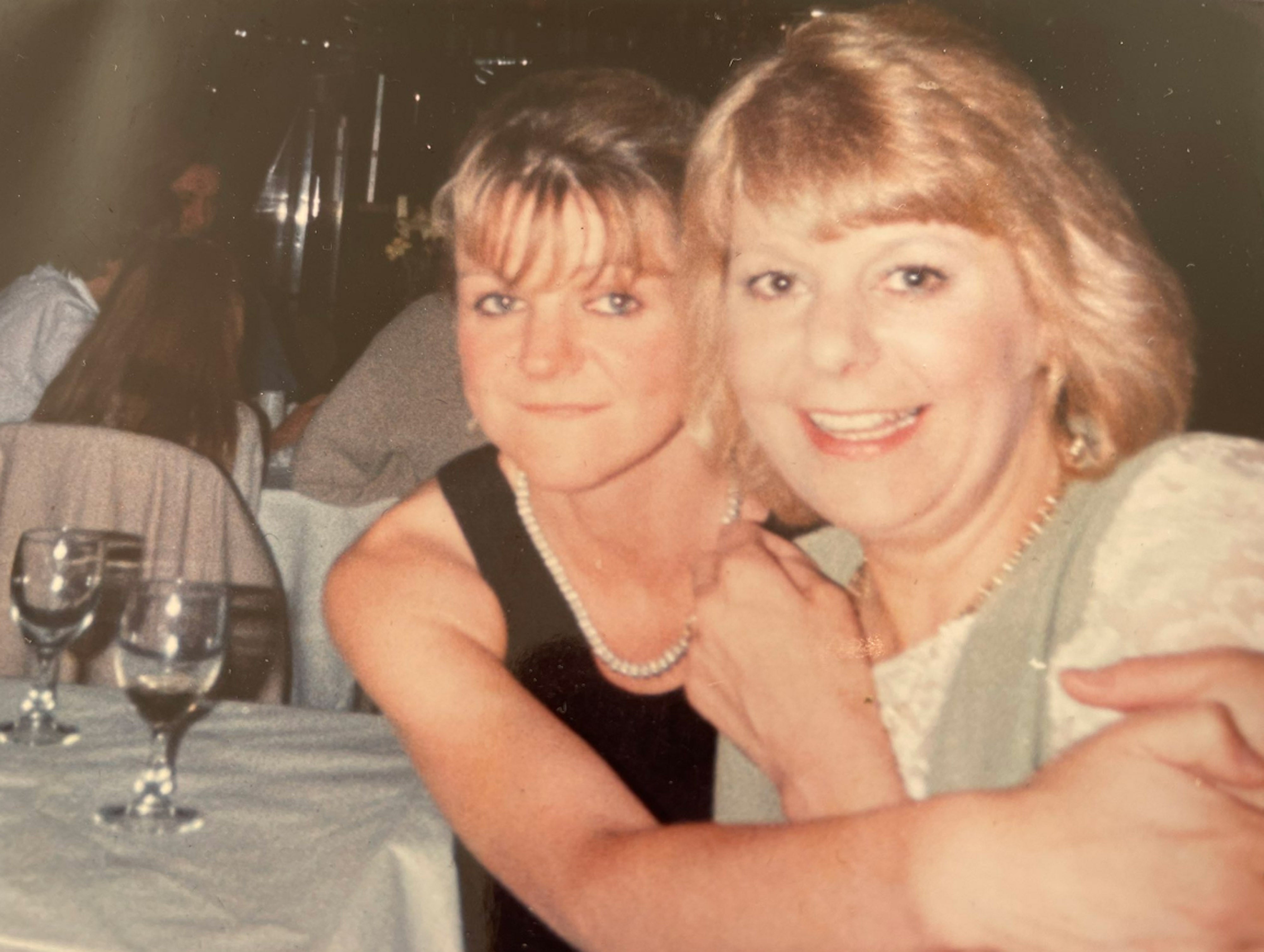
Jane Basham with sister Sandra
In pictures: Protesters outside Covid inquiry on first day of Johnson’s evidence
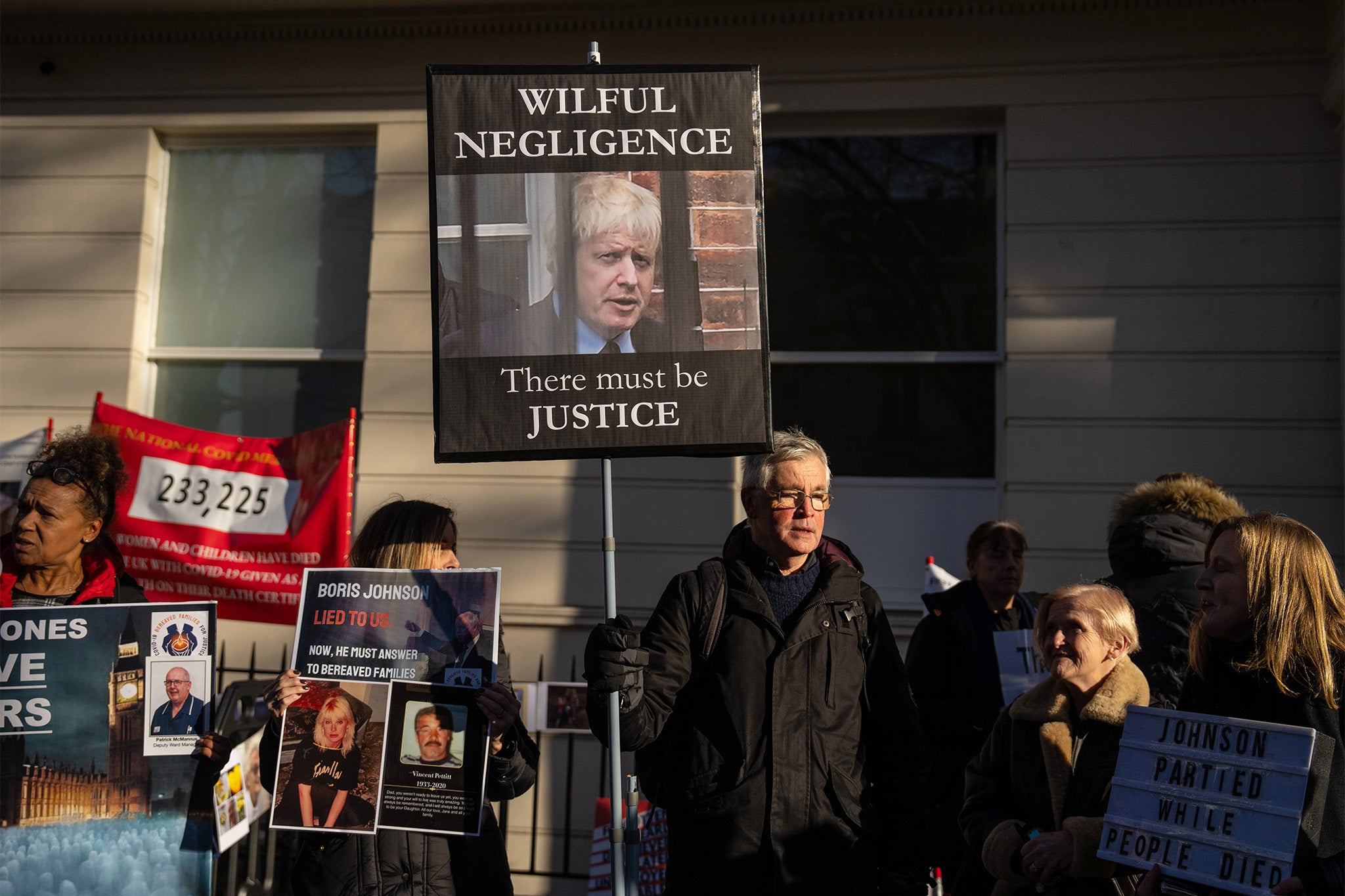
People hold placards as they protest outside the Covid Inquiry during the testimony by Boris Johnson on Wednesday
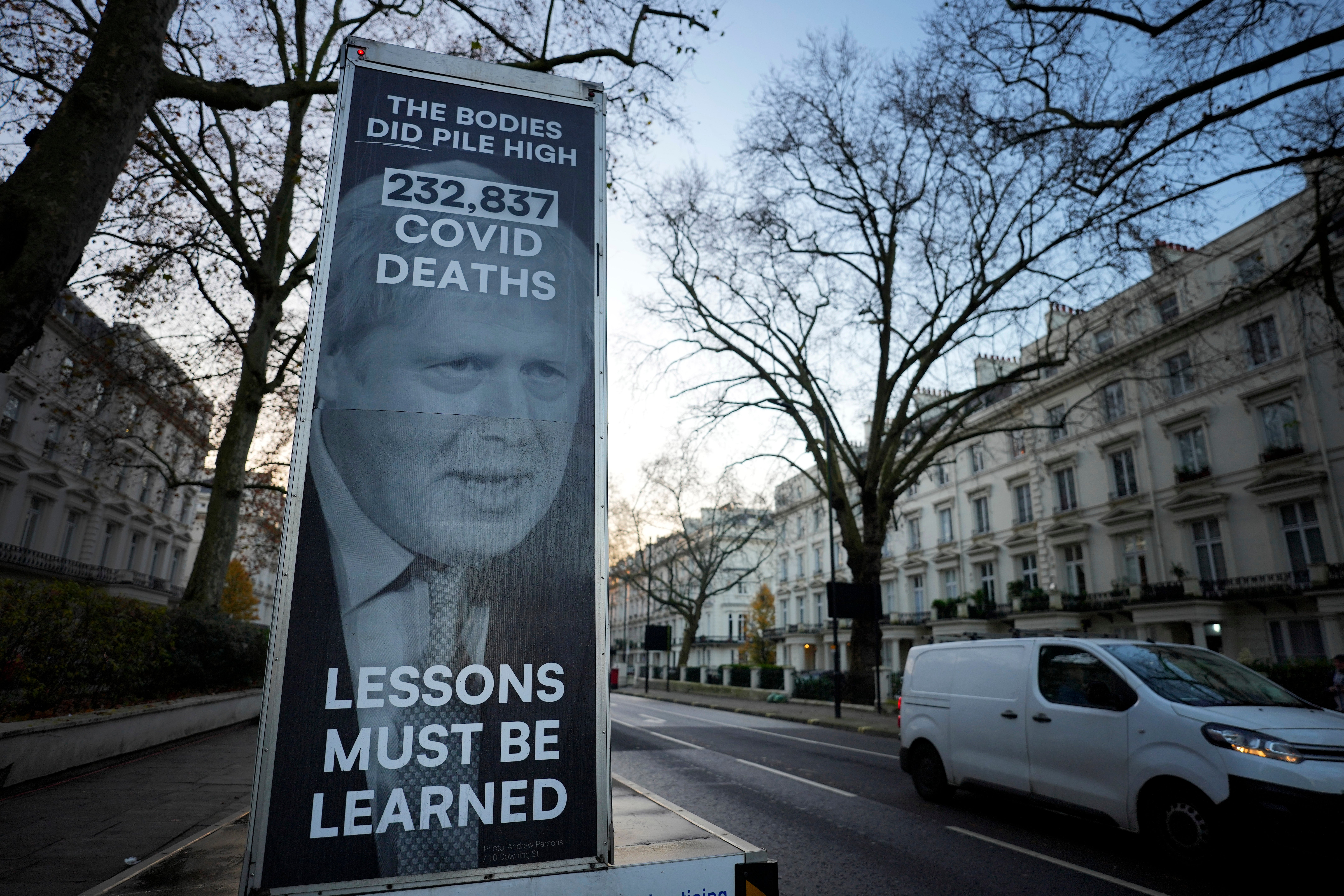
A van displaying a protest banner is parked outside the Covid-19 Inquiry in London on Wednesday
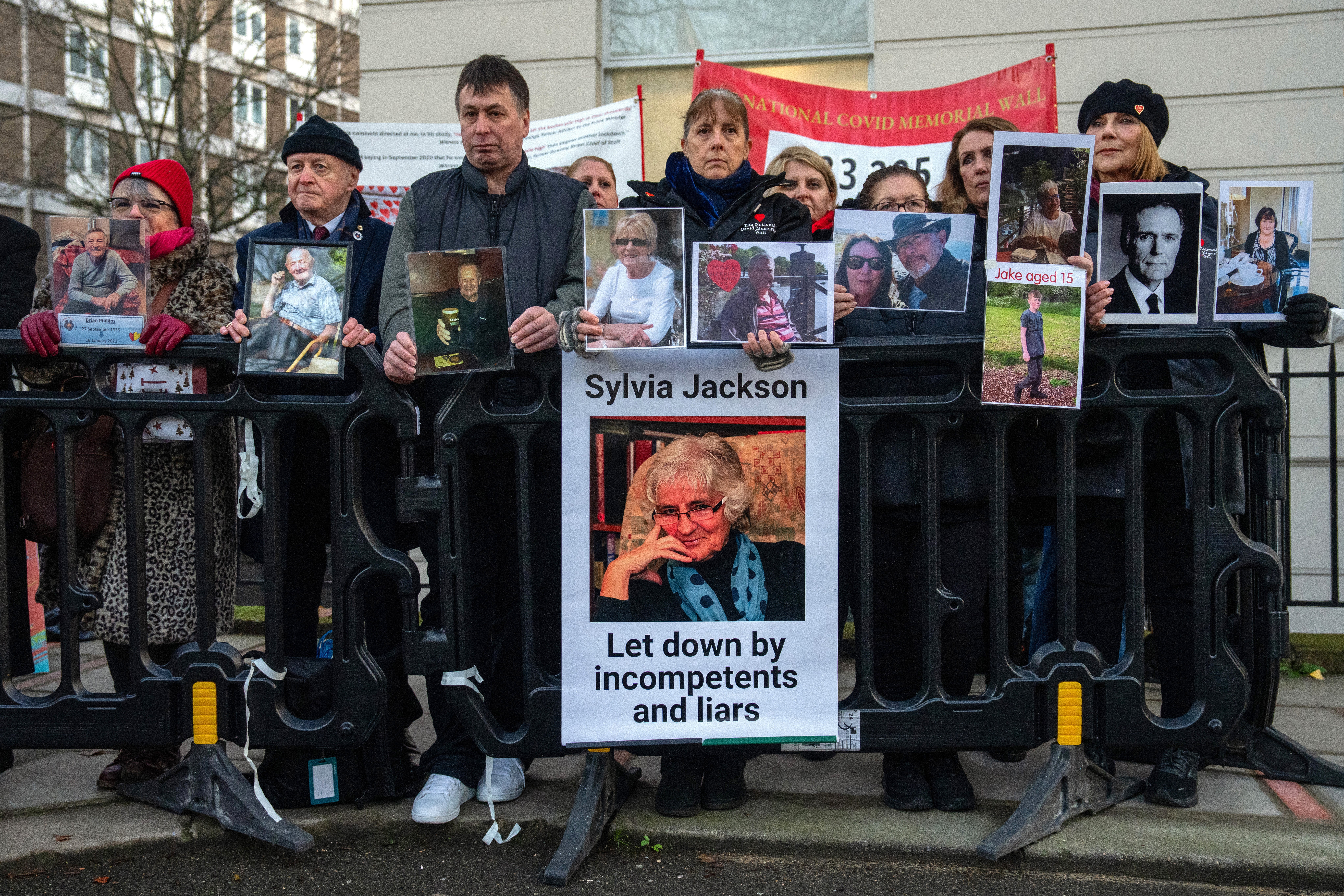
People hold banners as they protest after the arrival of Boris Johnson at the Covid Inquiry on Wednesday
Watch: Boris Johnson chokes up speaking about Covid in 2020
Boris Johnson: Where is he now and is he still MP?
Speaking outside Downing Street at the time before stepping down as PM, Mr Johnson thanked those who voted Conservative and said the reason he fought so long to remain in office was because he thought it was “my job, my duty and my obligation to you”.
Faiza Saqib reports:
The key takeaways from Boris Johnson at the covid inquiry
But, while his first evidence session saw less mud-slinging than others’, notably Dominic Cummings, there have still been several striking revelations.
Archie Mitchell reports:
Johnson on Manchester ‘treated differently’ to Liverpool
Boris Johnson was told that one of Sir Patrick Vallance’s diary entries suggested that in relation to Manchester and Andy Burnham, a Covid-S meeting drew a distinction between the support and measures for Manchester as opposed to Liverpool for “nakedly political reasons”.
It was put by Hugo Keith KC that on the local leadership a “view was taken about how cooperative it was being” and Manchester would be “treated differently” to Liverpool.
Mr Johnson said: “I don’t remember that at all. I think that Liverpool, certainly the people were heroic in trying to get mass testing going. And again, there was terrific hardship because of the lockdowns, but they were vital to the campaign to get mass testing going.”
Johnson calls for changes in way decisions are made at heart of government
Boris Johnson earlier called for changes in the way decisions are made at the heart of government.
He told the inquiry: “What I would submit is that, for future pandemics, there needs to be more clarity about which are the debating, the discussion meetings and which are the decision-making meetings.
“What would happen is that I would be presented with a problem and then within the space of half an hour, we would have got to the solution. And then we’d have to do it all again in a separate format or through the Cabinet or whatever.”
The former prime minister told the inquiry: “To be absolutely frank, I don’t think if I was sitting in a Covid O (operations) or Covid S (strategy) I could have told you at any given moment whether it was a Covid 0 or a Covid S, I was just sitting in meeting after meeting, trying to deal with the problem.
“That was the most effective way to do it. You needed to be sitting permanently on the bridge, trying to deal with it all.”
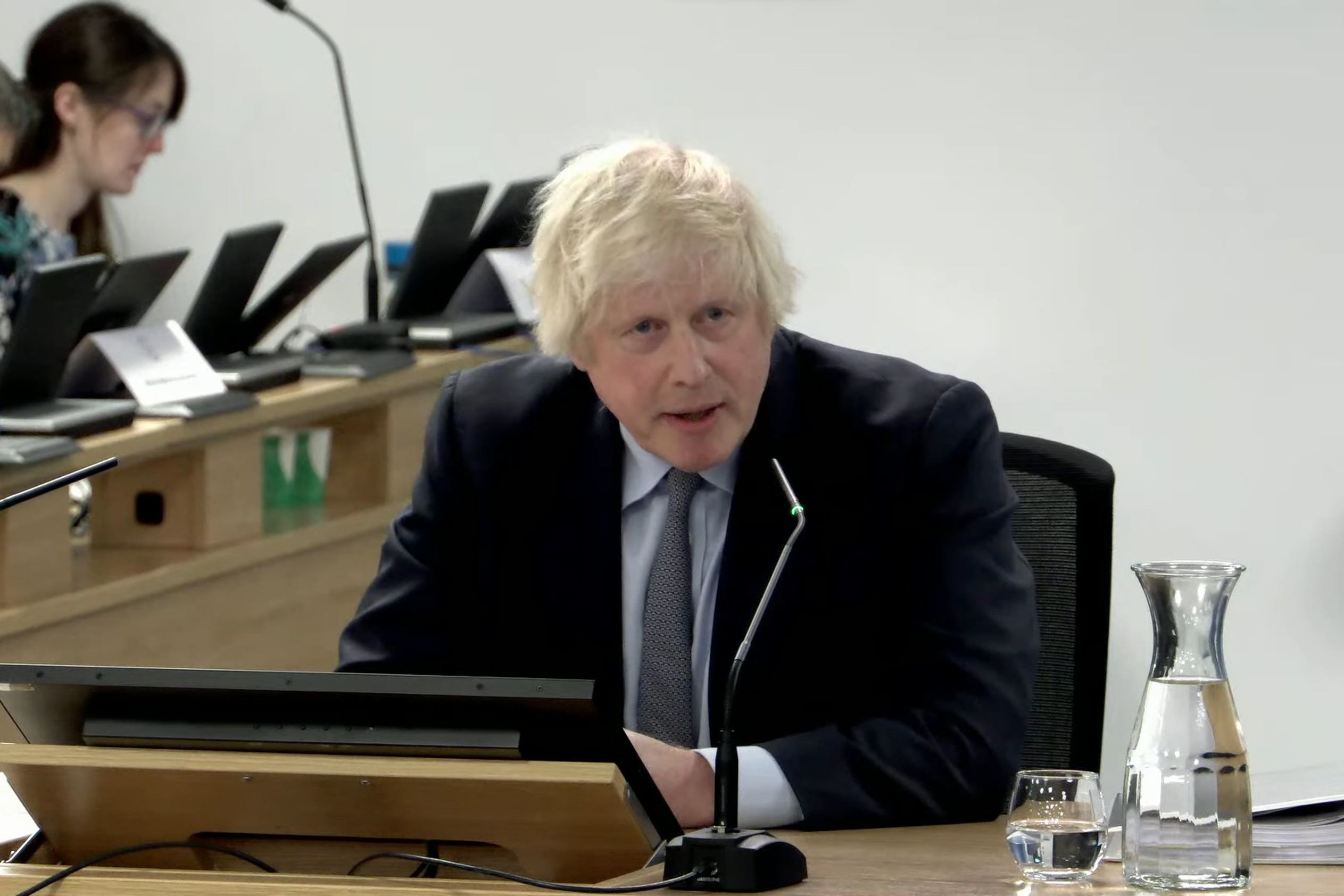
Former prime minister Boris Johnson giving evidence to the UK Covid-19 Inquiry
https://news.google.com/rss/articles/CBMiZGh0dHBzOi8vd3d3LmluZGVwZW5kZW50LmNvLnVrL25ld3MvdWsvaG9tZS1uZXdzL2JvcmlzLWpvaG5zb24tY292aWQtaW5xdWlyeS10b2RheS1saXZlLWIyNDU5MjI3Lmh0bWzSAQA?oc=5
2023-12-07 01:00:00Z
CBMiZGh0dHBzOi8vd3d3LmluZGVwZW5kZW50LmNvLnVrL25ld3MvdWsvaG9tZS1uZXdzL2JvcmlzLWpvaG5zb24tY292aWQtaW5xdWlyeS10b2RheS1saXZlLWIyNDU5MjI3Lmh0bWzSAQA

Tidak ada komentar:
Posting Komentar